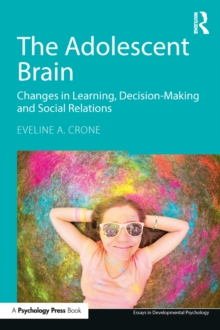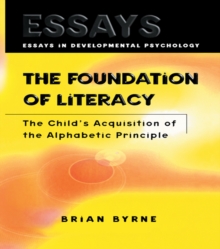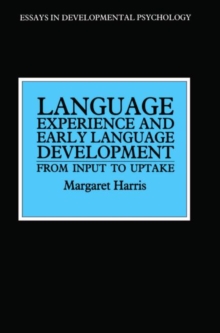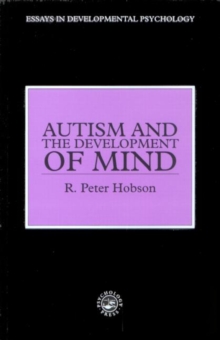
Security of Attachment and the Social Development of Cognition Hardback
by Elizabeth Meins
Part of the Essays in Developmental Psychology series
Hardback
- Information
Description
Security of Attachment and the Social Development of Cognition investigates how children's security of attachment in infancy is related to various aspects of their cognitive development over the preschool years.
The book thus constitutes an ambitious attempt to build bridges between the domains of social and cognitive development, and as such addresses issues which are of increasing interest to developmental psychologists.
In the first two chapters, Meins outlines Bowlby's attachment theory and the research which it has inspired, and develops the theme of a secure attachment relationship providing children with a sense of themselves as effective agents in their interactions with the world (self-efficacy). The next five chapters describe a longitudinal study of a sample of children whose security of attachment was assessed in infancy.
Security-related differences are reported in the areas of object/person permanence, language acquisition, symbolic play, maternal tutoring and theory of mind, but no differences were found in general cognitive ability.
Meins argues that the wide-ranging advantages enjoyed by the securely attached children are best explained in terms of their greater self-efficacy and social flexibility, nurtured by a particular kind of early infant-mother interaction. This book's major contribution is in its approach to explaining why securely attached children may be more self-effective and flexible in social interactions.
Meins attempts to account for these differences within a Vygotskian framework, focusing on the secure dyad's greater ability to function within the zone of proximal development.
She suggests that a mother's mind-mindedness (the propensity to treat one's infant as an individual with a mind) is an important factor in determining her ability to interact sensitively with her child.
In the final chapter, Meins considers how the Vygotskian approach can complement and extend existing theories of attachment, and suggests some ways in which future research might address outstanding questions in this rapidly advancing field.
Information
-
Out of StockMore expected soonContact us for further information
- Format:Hardback
- Pages:190 pages
- Publisher:Taylor & Francis Ltd
- Publication Date:30/06/1997
- Category:
- ISBN:9780863774683
Other Formats
- Paperback / softback from £42.42
- PDF from £44.09
- EPUB from £44.09
£130.00
£103.80
Information
-
Out of StockMore expected soonContact us for further information
- Format:Hardback
- Pages:190 pages
- Publisher:Taylor & Francis Ltd
- Publication Date:30/06/1997
- Category:
- ISBN:9780863774683



